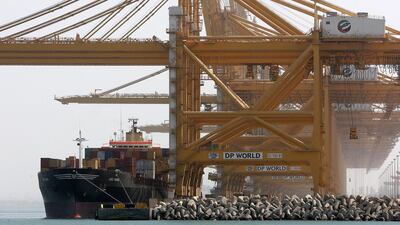It is a case of distressing times for distressed debt traders.
The financial crisis and the wave of regional loan restructurings that ensued created a multibillion-dollar trading opportunity for banks and brokerages that bought and sold the debts of such groups as Dubai World, Nakheel and Al Jaber.
But as indebted conglomerates have extended or reworked repayments owed to their creditors, the availability of such debt is in decline. What’s more, banks are now far happier to keep it on their books than they were in the depths of the financial crisis.
“We looked at distressed debt but the opportunities have been steadily decreasing over the past two to three years,” said Syed Kashif Hussain, the managing director at Essdar Capital.
A hearing in a Dubai courtroom last month was told that 100 per cent of Dubai World’s creditors had agreed to a plan to restructure about US$14.6 billion of the conglomerate’s debt, bringing to an end (for now at least) a five-year saga to strike a comprehensive agreement.
The agreement, which is expected to be formally signed by banks in the coming weeks, draws a line under one of the most painful chapters in the emirate’s history, with nearly all the country’s major conglomerates reaching comprehensive restructure agreements.
Nakheel, a former Dubai World subsidiary, signed a $16bn restructuring agreement in 2011. The conglomerate paid off the last of its debt in August of last year, nearly four years ahead of schedule.
Last June, Abu Dhabi’s Al Jaber Group signed a $4.5bn restructuring agreement with creditors, bringing to an end nearly three years of negotiations.
The decision by one of Dubai’s most high-profile distressed debt traders to transfer its fixed income trading division to London is symptomatic of a drying up of the distressed debt market in the UAE, even as opportunities remain in the rest of the region.
Last month the boutique investment firm Exotix, which specialises in trading in distressed debt and illiquid bonds, confirmed that it is in the process of moving its Dubai fixed income operations to London.
This came after the departure of a number of its fixed income specialists in recent months.
A spokeswoman for the bank, who did not wish to be named, said that the move to London was “to ensure synergies with the Emea team”, giving no further details.
She said that Exotix’s Dubai office would remain open, with two recent hires to boost the team’s Asian equities practice.
Exotix’s decision to shut down its Dubai fixed income operations comes as no surprise, given the dwindling market for distressed debt in the country, said Essdar Capital’s Mr Hussain.
“Virtually all of the restructuring agreements have been signed,” he said. “Plus right now bank liquidity is very high, partly as a result of the historic high oil prices, meaning that banks have been able to absorb these distressed assets and are no longer in a rush to offload them.”
A second Dubai-based debt trader, who also did not wish to be named, said that while the Dubai World settlement was significant, trading in distressed debt had been quiet for some time within the UAE.
“The big chunk of trades in big names like Dubai World happened two to three years ago, so transactional volumes have been pretty low since then,” he said. “So I don’t think the Dubai World settlement is the main cause for [Exotix] shutting down.”
There are still plenty of opportunities for the trading of distressed debt within the wider GCC region, he said, citing continuing situations such as Bahrain’s Arcapita, Investment Dar in Kuwait, and the numerous international parties involved in the dispute between Saad and Al Gosaibi.
The departure of Exotix’s fixed income team left “an empty space” in the trading of distressed bonds, according to Michael Grifferty, president of the Dubai-based Gulf Bond and Sukuk Association.
“It takes special risk appetite, research and network of buyers to deal in that particular sector,” he said. “However, that is not to say there are not assets available or buyers willing to trade.”
jeverington@thenational.ae
Follow The National's Business section on Twitter

